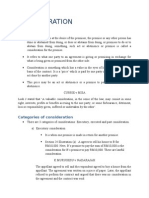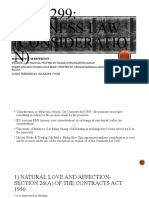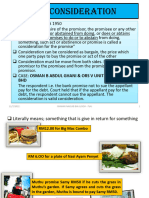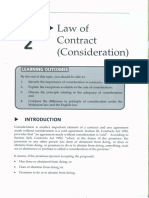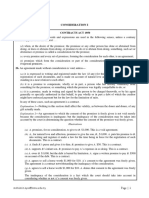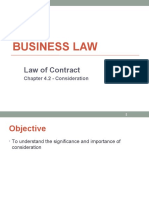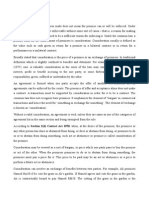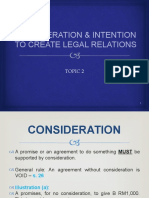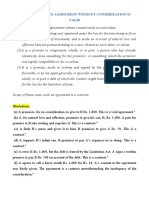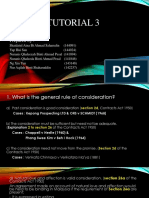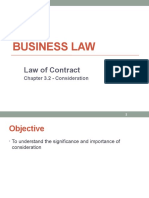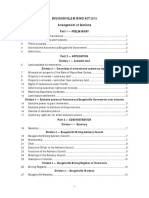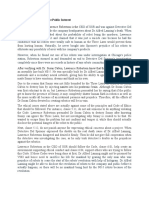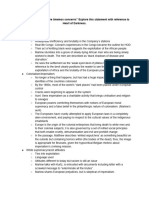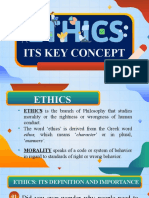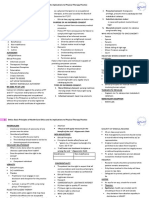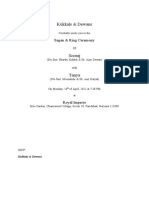0% found this document useful (0 votes)
6 views4 pagesConsideration StudyGuide
The document outlines the concept of consideration in contract law as defined by S. 2(d) of the CA 1950, detailing its types: executory, executed, and past consideration. It also discusses the general rule that agreements without consideration are void, while outlining exceptions and rules governing consideration, including adequacy and waiver of performance. Key cases and illustrations are provided to clarify these concepts and their applications in both Malaysian and English law.
Uploaded by
2023865468Copyright
© © All Rights Reserved
We take content rights seriously. If you suspect this is your content, claim it here.
Available Formats
Download as PDF, TXT or read online on Scribd
0% found this document useful (0 votes)
6 views4 pagesConsideration StudyGuide
The document outlines the concept of consideration in contract law as defined by S. 2(d) of the CA 1950, detailing its types: executory, executed, and past consideration. It also discusses the general rule that agreements without consideration are void, while outlining exceptions and rules governing consideration, including adequacy and waiver of performance. Key cases and illustrations are provided to clarify these concepts and their applications in both Malaysian and English law.
Uploaded by
2023865468Copyright
© © All Rights Reserved
We take content rights seriously. If you suspect this is your content, claim it here.
Available Formats
Download as PDF, TXT or read online on Scribd
/ 4




